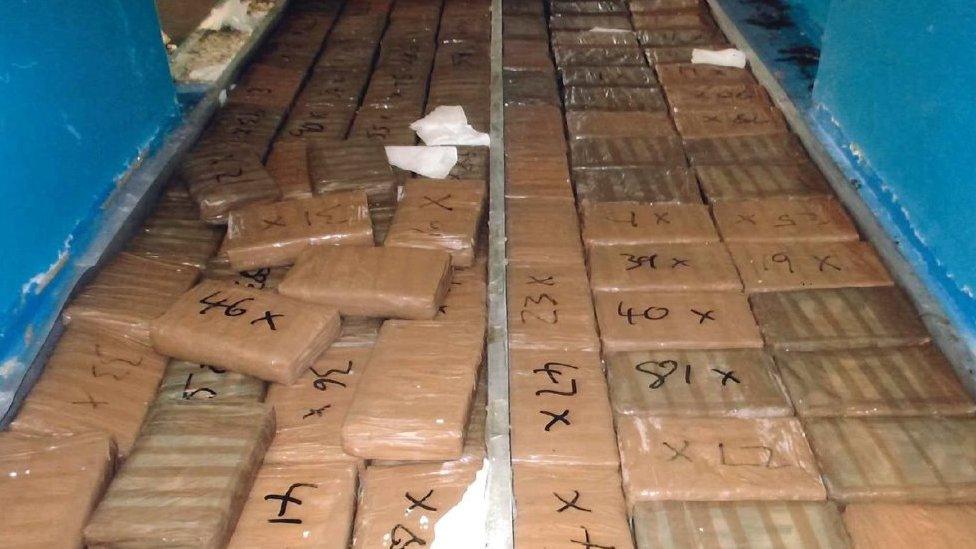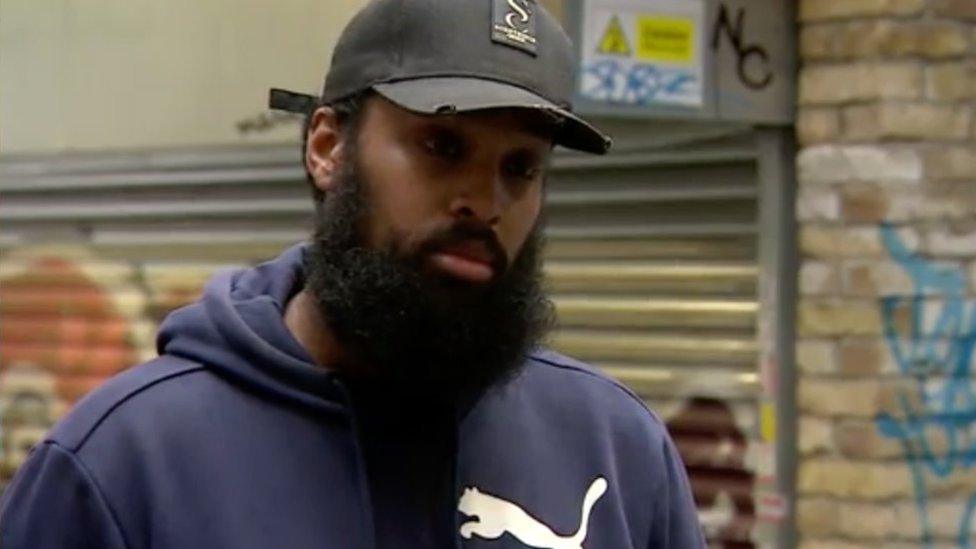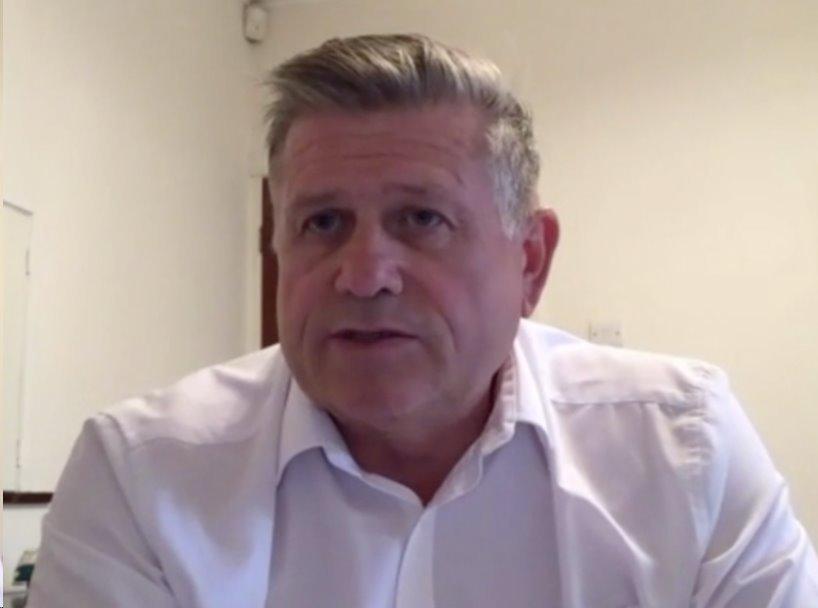Coronavirus: Lockdown could bring hope for drugs gang teens
- Published
"Even in a pandemic they're still moving drugs"
The lockdown could help teenagers caught up in drug violence turn their lives around, an experienced inner-city youth worker says.
The stay-at-home rules had led many to reflect in a "profound" way on their risky lifestyles, Mahamed Hashi, from south London, told BBC News.
The National Crime Agency said crime gangs and dealers had been forced on to the back foot by the pandemic.
And at least 10 tonnes of Class A drugs had been seized globally since March.
Law enforcement officials say lockdowns in countries where drugs are sourced, such as Pakistan and Colombia, together with aviation and shipping bans, have caused organised crime groups to move larger quantities in each consignment, leaving them more vulnerable to interception.
"In the last four weeks, we've really seen some of those restrictions beginning to get to the organised crime groups that are moving drugs at the top of the chain," NCA drugs threat head Lawrence Gibbons said.
Today police in Birmingham made six arrests in response to "a series of violent incidents and disorders in recent weeks believed to be linked to drugs and gang activity".

The lockdown means gangs are importing drugs in larger consignments, which are more likely to be intercepted
In another incident, three men were arrested after cocaine worth £3m was found in a "purpose-built hide" in a lorry that had travelled on a ferry from France to Dover on 23 April.
And earlier last month, five people were charged as part of an investigation into cocaine smuggling and money laundering based in Gravesend, Kent.
On the streets, meanwhile, it has been easier to spot criminals and make arrests because fewer people are around, officers say.
Provisional figures for England and Wales, for the four weeks to 12 April, show robbery and serious assaults down 27% and burglary down 37% on the same period in 2019.
But the most significant changes may be among troubled teenagers, some of whom may be drawn into drugs gangs, according to Mr Hashi.

Mahamed Hashi is a south London youth worker with 20 years' experience
"What we're finding is, because of the lockdown and because of the fear associated with Covid, a lot of them have spent more time at home with their families," he said.
"They've really had to think about their futures... about where their prior lifestyle was leading to."
Mr Hashi, who has spent 20 years in youth work and is now based in Lambeth, said many of the young people he was involved with spent their days on the streets and had never had an opportunity to "slow down" and reflect on where their actions were taking them.
"Whether it's a significant sentence in jail... carrying weapons... feeling in danger, I think they've been able to have a break from those almost immediate fears," he said.
But as the restrictions were eased, support must be made available to prevent those at risk being drawn back into gangs and crime.

Lawrence Gibbons is the National Crime Agency's drugs threat head
"The government, local authorities, youth providers, funders, they should also be reflecting on how to take advantage of this period of 'peace' and start looking at what we can actually put in there to support young people in continuing in a positive manner," Mr Hashi added.
But one leading gang expert said the lockdown had in fact made some young people more vulnerable.
"Street gangs are being forced to find new tactics, such as shifting grooming and recruitment online, to social media," Prof Simon Harding, director of the National Centre for Gang Research, at the University of West London, said.
"This means young people can become ensnared in dangerous gang activity from their phones while their families have no idea - and that is a worry."
The NCA is also pessimistic, having seen heroin prices double since the start of the pandemic
"The drug supply chain is driven by greed," Mr Gibbons said.
"They don't stop at times like these - and, even in a pandemic, they are still moving or attempting to move drugs."
And there was little chance organised crime gangs could go bust because of the global lockdown.
"They make so much profit, I doubt that," , Mr Gibbons said.
"But we can but hope, I suppose."

A SIMPLE GUIDE: How do I protect myself?
AVOIDING CONTACT: The rules on self-isolation and exercise
HOPE AND LOSS: Your coronavirus stories
LOOK-UP TOOL: Check cases in your area
TESTING: Can I get tested for coronavirus?
